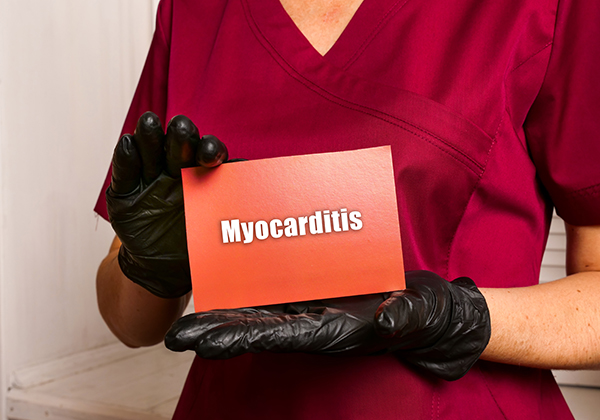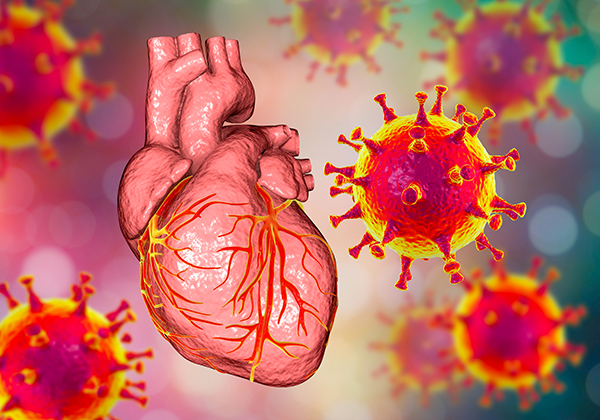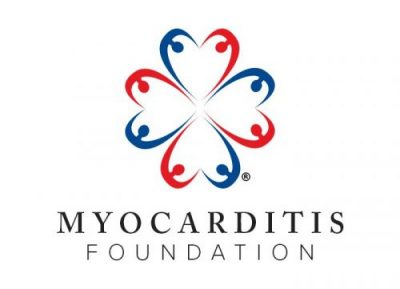A diagnosis of myocarditis can be life-changing, but the right approach to diet and exercise can significantly support heart health during recovery. Myocarditis is an inflammation of the heart muscle, often caused by viral infections or immune system disorders. While treatment varies, adopting a healthy lifestyle can help manage symptoms and reduce the risk of complications. This guide provides actionable steps for optimizing diet and exercise after a myocarditis diagnosis.
Whether you’re recovering from a mild case or facing long-term management of the condition, working closely with healthcare professionals is crucial. A personalized approach to diet and exercise can improve your quality of life, support heart function, and aid in preventing future cardiac issues.
Importance of a Healthy Lifestyle
Leading a healthy lifestyle is crucial for individuals recovering from myocarditis. The heart, like any muscle, benefits from proper nourishment and physical activity. Adopting a balanced diet helps reduce inflammation and promotes cardiovascular health, while regular, light exercise can help improve circulation. Together, these lifestyle changes can aid in the recovery process and help manage symptoms such as fatigue or shortness of breath.
However, it’s important to approach lifestyle changes cautiously. Myocarditis can cause a weakened heart, which means certain exercises or diets that would normally be beneficial could be harmful if not adapted for your condition. The key is balance—eating nutrient-dense foods and incorporating physical activities that support your overall well-being without overstressing the heart.
Consultation with Healthcare Professionals
Before making any changes to your diet or exercise routine, it is essential to consult healthcare professionals. A cardiologist can evaluate the severity of your myocarditis and recommend safe levels of physical activity. They may advise you to avoid high-intensity workouts, which can strain the heart, and instead suggest low-impact exercises, like easy walking, that promote heart health without causing harm. In some cases, you may be asked to refrain from exercise entirely until your heart function improves.
Similarly, consulting a nutritionist or dietitian can help you develop a personalized meal plan that supports your recovery. A nutritionist can offer guidance on nutrient-rich foods that help reduce inflammation and improve heart health while considering any other health conditions you may have. A professional team approach ensures that you receive individualized care, tailored to your specific needs and recovery goals.
Click here for tips on how to prepare for your myocarditis appointment.
Heart-Healthy Diet
A heart-healthy diet is essential for individuals recovering from myocarditis. Nutrient-dense foods support the heart’s healing process and reduce the risk of further inflammation. Here are three key areas to focus on when planning your diet:
-
-
- Reducing Sodium Intake: High sodium intake can elevate blood pressure, placing additional strain on an already weakened heart. Limiting sodium helps reduce the risk of heart failure and hypertension. It’s recommended to keep sodium intake below 2,300 mg per day, but for those recovering from heart conditions, even stricter limits (1,500 mg or less) may be advised. Opt for fresh, whole foods rather than processed options, as packaged and restaurant foods are often loaded with hidden sodium.
- Balanced Nutrition: A balanced diet should include a variety of fruits, vegetables, whole grains, lean proteins, and healthy fats. These foods provide essential vitamins, minerals, and antioxidants that promote heart health. Incorporate fiber-rich foods like oats, beans, and vegetables, which help regulate blood sugar and cholesterol levels. Protein sources like fish, chicken, and plant-based options (e.g., lentils) are excellent choices for maintaining muscle mass and supporting overall well-being.
- Limiting Saturated and Trans Fats:
Saturated and trans fats are detrimental to heart health, contributing to plaque buildup in the arteries. These fats are commonly found in fried foods, baked goods, and processed meats. Instead, focus on consuming healthy fats from sources like olive oil, avocados, nuts, and fatty fish such as salmon. Omega-3 fatty acids, in particular, have been shown to reduce inflammation and improve heart function.
-
Hydration
Proper hydration is vital for overall health and is especially important for individuals recovering from myocarditis. Dehydration can lead to thickened blood, making it harder for the heart to pump effectively. Staying hydrated helps maintain optimal blood volume and pressure, ensuring that your heart doesn’t have to work harder than necessary.
Aim for at least 8 glasses of water per day, but this amount may vary based on your individual needs and any medications you’re taking. Certain heart medications, like diuretics, may increase your body’s need for fluids. Consult your doctor about the appropriate amount of fluid intake for your condition, especially if you’ve been advised to limit fluid due to heart failure.
Monitoring and Managing Weight
Maintaining a healthy weight is crucial for reducing the strain on your heart during recovery from myocarditis. Excess body weight, especially around the abdomen, increases the workload on your heart and can contribute to high blood pressure and other cardiovascular issues. By managing your weight, you can improve heart function and reduce the risk of future heart problems.
A combination of a healthy diet and regular physical activity can help you achieve and maintain a healthy weight. Small, sustainable changes, such as reducing portion sizes, increasing vegetable intake, and choosing healthier snacks, can make a big difference over time. Be patient with yourself—weight management should be gradual, especially during recovery, to avoid unnecessary stress on the body.
Exercise Recommendations
Exercise is important for heart health, but when recovering from myocarditis, it must be approached with caution. Always consult your doctor before beginning any exercise program. Here are some general exercise recommendations for myocarditis patients:
-
-
- Cardiovascular Exercise: Low-impact cardiovascular exercises such as easy walking can improve heart function without causing excessive strain. Start with short sessions—around 10-15 minutes—and gradually increase the duration as your endurance improves. Pay attention to your body, and stop exercising if you experience any unusual symptoms, such as chest pain or dizziness.
- Strength Training:
Avoid heavy lifting until your doctor gives the go-ahead. - Flexibility and Balance:
Flexibility and balance exercises, such as yoga or tai chi, can help improve overall mobility and reduce the risk of falls, especially in older adults. These activities also have a calming effect, which can help lower stress levels—an important factor in heart health.
-
Gradual Progression
Gradual progression is key when adopting any new diet or exercise plan following a myocarditis diagnosis. Sudden or drastic changes in activity levels or diet can put unnecessary stress on your heart and may hinder recovery. Whether you’re starting a new exercise routine or adjusting your diet, make small, manageable changes and increase intensity slowly over time.
For example, if you’re new to exercise, start with a 10-minute walk each day and gradually increase the time as your stamina improves. Similarly, introduce one new heart-healthy food at a time, allowing your body to adjust. The goal is long-term sustainability, not quick fixes. Always listen to your body and consult your healthcare provider before making significant changes.
Medication Adherence
Medications play a critical role in the treatment and management of myocarditis. These medications may help control inflammation, reduce symptoms, and support heart function. Common medications include anti-inflammatory drugs, beta-blockers, and diuretics, depending on the severity of your condition.
It’s essential to follow your doctor’s prescribed medication regimen closely. Skipping doses or stopping medication prematurely can lead to complications or worsen your condition. If you experience side effects, talk to your healthcare provider rather than stopping the medication on your own. Your doctor may adjust your dosage or switch medications to find the best treatment plan for you.
Monitoring Symptoms
As you recover from myocarditis, it’s important to monitor your symptoms, especially during exercise. Pay close attention to how your body responds to physical activity. Symptoms like chest pain, shortness of breath, dizziness, or heart palpitations should not be ignored. These may be signs that your heart is struggling to keep up with the activity.
Keep a log of your symptoms, noting when they occur and what you were doing at the time. This information can be helpful for your healthcare team in adjusting your treatment plan. Additionally, listen to your body’s signals—if something doesn’t feel right, it’s always better to err on the side of caution and consult your doctor.
Psychosocial Support
Recovering from myocarditis can be emotionally challenging, and it’s important to recognize the psychosocial impact of the diagnosis. Many patients experience anxiety or depression as they adjust to life with a heart condition. Talking to family, friends, or joining a support group can help you navigate these feelings. Support groups, whether in-person or online, offer a sense of community and understanding from others who are going through similar experiences.
Emotional support plays an important role in your overall recovery. Don’t hesitate to seek help from a mental health professional if needed. Addressing the emotional aspects of recovery can be just as important as the physical ones, as stress and anxiety can negatively affect heart health.
Conclusion
Recovering from myocarditis requires a personalized approach to diet and exercise. Always work closely with your healthcare team to develop a plan that is safe and tailored to your specific needs. By adopting heart-healthy habits, managing your weight, and following appropriate exercise guidelines, you can support your heart’s recovery and reduce the risk of future complications.
The journey to recovery may be slow, but it’s important to remember that gradual progress is key. Small, consistent changes to your diet and exercise routine can have a profound impact on your heart health over time. By focusing on balanced nutrition, limiting sodium and unhealthy fats, and engaging in light physical activity, you can create a sustainable lifestyle that supports long-term heart health.
Additionally, adhering to medication, monitoring symptoms, and seeking psychosocial support are critical components of managing myocarditis. Don’t hesitate to lean on your support system, whether it’s family, friends, or a healthcare provider, to help you navigate the physical and emotional challenges that may arise during recovery. Remember, every step you take towards a healthier lifestyle brings you closer to a stronger, healthier heart.
Above all, listen to your body and prioritize self-care, as this is an essential part of the healing process. With the right combination of diet, exercise, and medical guidance, you can continue to live a fulfilling and active life even after a myocarditis diagnosis.

































